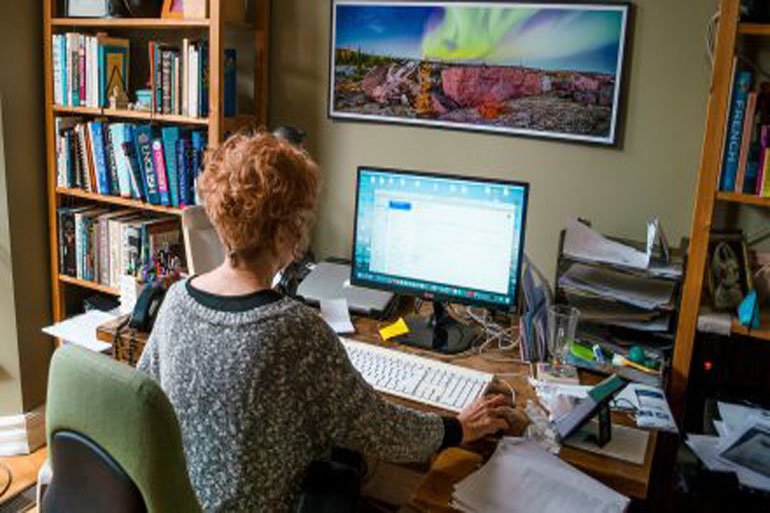Who runs the world? So goes Beyonce’s foot-stomping, adrenaline-raising battle-cry for women masquerading as a pop song. But with full deference to the queen, the question is not of who, but how we run the world?
The Covid-19 pandemic and the social distancing rules are the ctrl-alt-del of our times. A reboot, a do-over at the way we live our lives and how we conduct our business on this planet. Corporations are going into a huddle all around the world and foremost on the agenda is the reimagining of workplaces and work schedules. What kind of jobs can be done remotely and how much work can be done from home is getting figured out. Emails from HR have been circulating asking employees to adhere to a slew of rules; for example, be seated at a dedicated desk at home, sharp at 9: 15 am, business meetings on video telephony apps are being scheduled— pre-lunch and post-lunch and sometimes late into the evening.
But the business world must not stop restructuring itself just around epidemiology. If it really wants to transform it must also incorporate biology. Because if we as a race really want to be at our most productive in creating value and wealth and raising the standard of living, then we need to reinvent work schedules and office space around a woman’s life and her daily routine.
I’ll give you an instance, one that has stayed with me in all my professional years as a writer, journalist and broadcaster. While feature-writing for a local tabloid, I was also balancing the fine-china task of looking after my 4-month old firstborn daughter, which meant returning home within a reasonable length of time to nurse her and care for her. I was devoted and committed to both responsibilities and worked hard to fulfil both roles.
Until the day I was called in by the editor of the paper questioning me about the shortfall in my work hours. Hours, mind you, not the no of stories I had handed in or the quality of my writing and editing. Clocking hours in office was paramount, not the actual output. What my editor failed to understand was that I was not an assembly line worker in a manufacturing plant. Once I had punched out a story or had finished editing my page I was effectively done for the day. Some days work would require me at the office, on other days I could deliver from home. Maybe it was the exasperation of not being understood by my own gender or the defensive mother in me that I stood my ground. I told her that as soon as I finished my work in the office I would like to head home to be with my baby.
I was doing my best to tick all the boxes. And I thought a newspaper of all places would appreciate the quality of my work and understand the narrow confines in which a new mother operates. My speech didn’t work and I was told to fill in my mandatory hours, punch in and punch out my regular eight and a half hours. This episode took place 13 years ago, and I’ve had countless experiences in my professional life that have reinforced the idea that the world demands working women to follow the routine drawn with men in mind while also fulfilling their familial role.
Pregnant women, lactating women, women with growing kids, women with college-going kids– all have different demands on their routine every day. Their work-life, if they are allowed to have one, can never fit the 9 to 5 roster. Even in the 21st century, we find leadership positions in all spheres of business, commerce, politics and governance are still largely occupied by men. In the razzle-dazzle of this technological age we still haven’t figured out a way of extending a hand to working women who need support and understanding not as a hand-out but as a balancing of the biological scales. Women by virtue of natural order do not get to pass the evolutionary baton to their male counterparts. We still are the ones to menstruate, bear the children and then after bringing the child into the world nurture them physically and bear most of the emotional labour of parenting.
So how then does the female of the human species get to realise her full talent and potential while raising a family? Well, by getting her due share of rights and means to realise her potential. Women should have greater control over their work schedule and work life. HR policy needs to be made keeping in mind the family, not the individual alone. Every employee, man or woman, needs to be given a flexible work schedule without compromising the needs of his or her job. More importantly, based on their family demands, women should be allowed to structure their working day. No doubt every profession, job profile, area of expertise will have its unique work schedule requirements. But there is no reason why they cannot be easily matched with the individual employee’s family responsibilities.
The current pandemic has clearly shown that we can be creative in the way we get the job done, even while working remotely. Society needs broader thinking and structural changes if it wants to realise the full potential of half the human population. It’s time that we think not just in terms of work from home but also works while running a home.
(By arrangement with IPA/The Leaflet)







